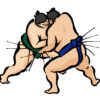What does “Donmai” mean in Japanese? When can it be used? ドンマイ

Donmai!(どんまい:ドンマイ)
Donmai, ki ni shinaide!(ドンマイ、気にしないで!)
Donmai, kondo wa ganbatte!(ドンマイ、今度は頑張って!)
In Japanese conversation, the word “donmai" is sometimes used. It is a word often used by friends or family, at work, or in sports scenes. Of course, this word often appears in Japanese novels, movies, TV dramas, etc.
What does “donmai" mean and when is it used?
What does “donmai" mean in Japanese?
The word “donmai" is used to express the feeling of cheering for someone when they make a small mistake.
Therefore, the meanings of the above example sentences are as follows.
Donmai!(どんまい:ドンマイ)
It’s okay!
Donmai, ki ni shinaide!(ドンマイ、気(き)にしないで!)
never mind!
Donmai, kondo wa ganbatte!(ドンマイ、今度(こんど)は頑張(がんば)って!)
You can do better next time!
As mentioned above, you can use it with friends, with your family, or at work. Also, it is common to say “donma-i!" When someone makes a mistake in the sports scene, especially in a team competition such as baseball.
In English, the following expressions would be equivalent.
Don’t worry.
Not to worry.
Never mind.
It’s OK.
It’s all right.
It’s not a big deal.
No worries.
Shake it off.
“Donmai" was originally an English phrase
“Donmai" is usually written in katakana as “ドンマイ", and in fact, it is originally derived from English conversational sentences. The word “don’t mind" has changed to “don-mai".
“Don’t mind" is usually used like “I don’t mind" and is not used to comfort or encourage the other person.
However, in Japan, it is used in a slightly different sense from its original meaning. This word has already appeared in the New Word Dictionary published in 1930 and has been used in Japan for at least 90 years. It seems that the Japanese who first heard the sentence “I don’t mind" started using it in a slightly wrong sense and spread it.
Imagine someone making an error in a baseball game. And suppose the people around him say “I don’t mind" to him.
That means, “We don’t mind your failure!" It’s unclear if they want to encourage, tell off, or sarcasm the person.
Anyway, there is such a background, but it is already established among people as Japanese. Keep in mind that there is a Japanese word “donmai" for those who may be concerned about their mistakes.
And “fight!"
Also, the word “faito(ふぁいと:ファイト)!" is sometimes used when cheering for someone. It is usually written in katakana.
Tsugi wa motto umaku dekiru yo. Faito!
次(つぎ)はもっとうまくできるよ、ファイト!
You can do better next time, faito!
Ashita wa shiken dane. Fiato!
明日(あした)は試験(しけん)だね、ファイト!
It’s an exam tomorrow, faito!
This “faito" comes from the English word “fight."
In English, it corresponds to “Hang in there", “Keep doing it," or “Go for it."
Used in casual conversations, obviously, it doesn’t mean that someone goes to a fight or duel somewhere.
It may include the meaning of “fight yourself" so that the person can exert more strength next time.
















